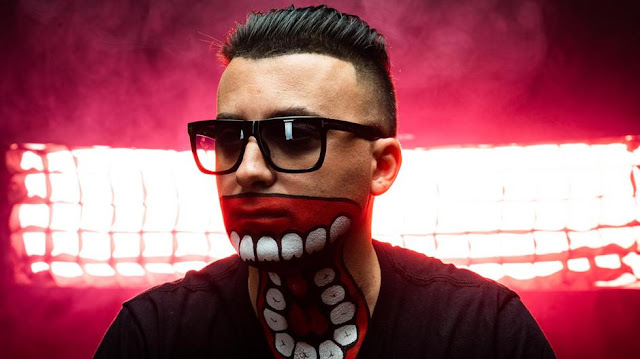To appreciate the Arab world’s contribution to the US pop charts you simply need to look through the credits of several successful tracks.
There, you'll find the names of regional artists who have worked behind the scenes and unleashed some of the biggest hits of the past two decades.
There's Lebanese-Canadian producer Noah Shebib, who has long been viewed as superstar Drake’s sonic architect.
Then there's Grammy Award-winning Moroccan-Swedish Dubai resident Nadir “RedOne” Khayat, co-writer and producer of chart-toppers for Lady Gaga (Bad Romance) and Enrique Iglesias (I Like How It Feels).
Hardcore fans of One Direction and Backstreet Boys will also be familiar with Rami Yacoub, the Palestinian-Swedish producer behind hits What Makes You Beautiful and Shape of Your Heart.
In 2018, Iraqi-American producer Art Beatz, real name Art Essa, joined that esteemed list.
He co-wrote Goodbye, a club banger from French DJ David Guetta that features vocals by US hip-hop stars Nicki Minaj and Jason Derulo.
Essa's success could not have come at a better time. “I was nearly 10 years into my career and at that stage, I was working so hard,” he tells The National.
“I would be producing and touring at night and during the day, I would be doing all kinds of jobs, from working in a gas station to a pharmaceutical company. It was relentless.”
Goodbye was Essa’s calling card. It allowed him to dedicate time exclusively to his craft with impressive results.
His remix of Fatman Scoop's Cobra Dance and solo number Camel Shake got enthusiastic responses on the EDM Beatport charts. Meanwhile, Essa was invited to Dubai by record labels to helm songwriting sessions with regional artists.
Then, the pandemic struck and all that hard-earned traction receded. The frustration that caused is evident, albeit slyly, in Mali Wahs.
Released last week, the collaboration with fellow Iraqi-American singer Rawi is a vivacious melange of Khaleeji pop and heady club beats, with a cheery sound that manages to disguise the lyrical resignation within.
An Iraqi saying, Mali Wahs can be described as the English equivalent of “I’m done with this” or “just forget it".
Initially recorded through Zoom sessions in March 2020, the track, Essa says, sums up the mood at that time. "We were all at home, not doing anything, not knowing what is going on and just feeling sad," he says,
"This song talks about that but in a way to say: 'Yalla, let's eventually shrug it off and move on.'”
On the strength of the song, Dubai’s Sony Music Middle East signed up the duo on a two-song deal, with the second Arabic track to be released this year.
“It does feel, in a way, like a homecoming,” Essa says. “For some time I have been trying to find a way to reunite both sides of myself. I have been living in the US for a while but I also grew up in Iraq and part of that culture is with me. This song is almost like the first steps in bridging both worlds together.”
Born in the Karrada district in Baghdad, Essa recalls a young life full of play.
"It was all about soccer," he says. "When I think about that time, it does seem like another world. All I was doing really was playing soccer all day in the streets. My dream was to be a professional player for big team."
He was well on his way, too.
After moving to Boston in 2005, at aged 14, he eventually managed to get a college scholarship for his prowess.
“My parents were not very impressed,” Essa recalls, with a chuckle. “I remember telling my mum I am going to college for free, and she said, ‘So what? We sent you here for education and you have been playing all your life.'”
Essa got a degree in biotechnology. At the same time, his passion transferred from sport to music.
He built an in-home studio and taught himself the keyboard, DJing and how to use production software.
While the blending of Arab melodies and western dance arrangements in Mali Wahs sounds fluid, Essa says it did not come easy.
It required changing the approach in which many Arabic pop songs continue to be written.
“This song was written in the same way US pop producers write, in that it’s the music first and the lyrics second,” he says.
“This is the total opposite of what happens in the Middle East.”
Essa found this out through numerous trips to Dubai, where he partook in some frustrating songwriting sessions, he says.
“This is why some of the Arab pop songs that try to have these western sounds don’t really work, because it doesn’t fit together."
“It ultimately requires some of the songwriters here to have that courage to step out of that cycle and try that new approach and style.”
With Mali Wahs and future Arabic songs, Essa aims to bridge the gap between the two songwriting traditions. It may not be the goal he was aiming for on the streets of Baghdad, but he may well be within striking distance.
by Saeed Saeed


















0 Comments